How Sugar Cane Makes Indians Get Married at 10 (8 photos)
India is the world's leading producer of sugar from sugar cane, surpassing even Brazil. But if you ask yourself at what cost the country has achieved this, the chilling truth will come out. 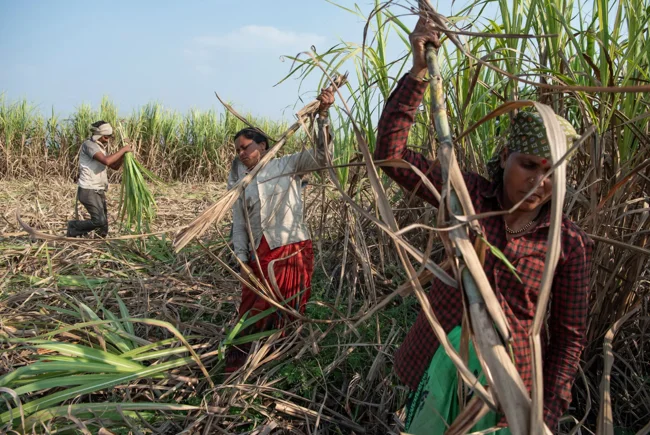
Which sugar do you like more? Beet or cane
Sugar won't let you go
There are a lot of sugar fields in the state of Maharashtra, the state supplies products to Coca-Cola, Pepsico and Unilever. Local politicians and sugar magnates say workers are free to quit if they find the work too hard, but…
As Gige Dutta, who fled the fields, told the story of when he and his wife decided to quit working in the fields because the fields were too far from a school and their daughter needed to go to school. He knew that school was his daughter’s only way out of poverty. 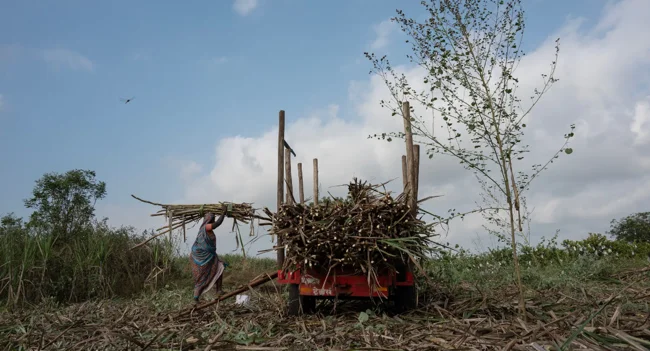
One chops, the other loads, they work in pairs
But the employer refused to let the couple go. He and his friends beat Dutta up in the sugar mill and then locked him in there for two days to make him change his mind. He managed to escape and went to the police, afraid that he would be kidnapped and forced to work. Because this is a very common phenomenon in the sugar states.
The sugar workers of Maharashtra are far from free. They are at the mercy of their employers, who decide when they can leave. They often work under the threat of violence, kidnapping and murder. 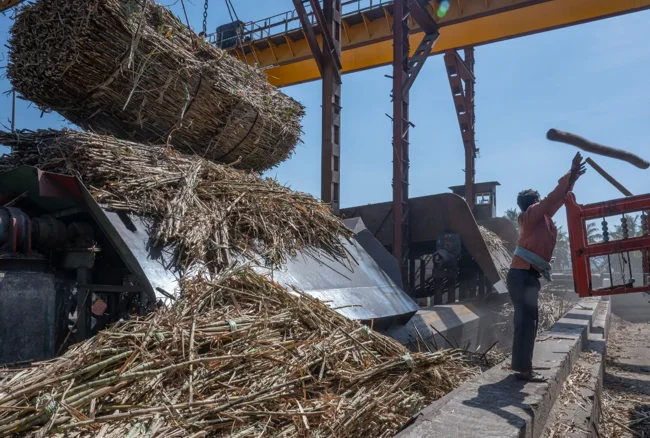
The output to the factory is already leased by the "landlord" who employs the poor
Most often, threats are enough to keep the most gullible Indians in fear.
An outrageous case that did not outrage anyone
A couple of years ago, an investigation by an English journalist found that one of the sugar companies forced its workers to undergo hysterectomies (removal of the uterus) so that their periods would not interfere with their regular work in the fields during the season.
This was not an isolated case, but… the company did not have anything to do with it, because most of the women were quickly hidden in remote fields. 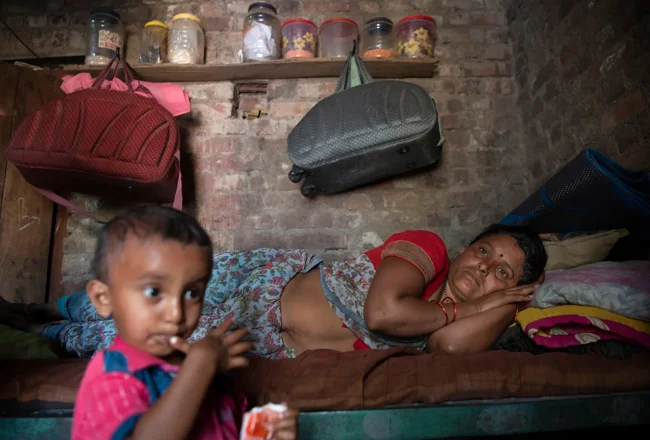
The life of a woman working in the fields, sports bags to move between fields
In general, this is how modern slavery works in India, especially child slavery. They are simply moved to a new plot in the forest when one of the plots comes under the attention of the authorities or journalists. The children are told that they must hide themselves, otherwise they will be sent away from their parents.
Profit is everything
All Western companies, especially Coca-Cola, condemn bonded and slave labor. But they all refuse to comment on the situation with workers in the sugar fields. Where else will they buy so much sugar? 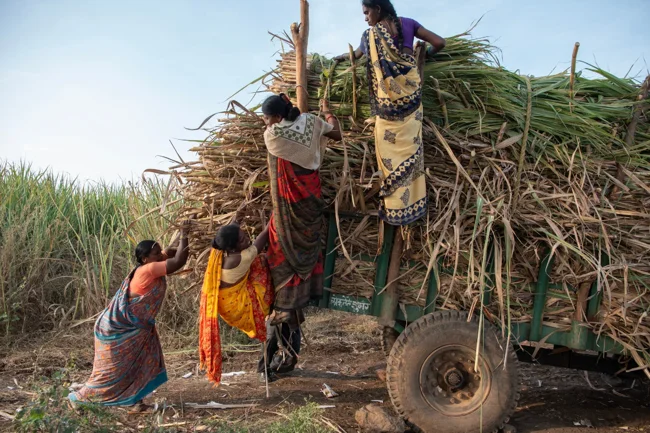
I am always amazed at how skillfully they work in such colorful saris
The Maharashtra government not only does not solve this problem, but also denies its existence. The government's court filing says sugar workers are "free to move anywhere and are never held in bondage by an employer."
India's Cunning Wage System
There is one small trap that easily catches the poor in these fields.
When they start working, they are given money in advance against their future salary. The poor spend this small amount on living and food, and the salary is not enough to pay off the debt and live. So they remain in the fields to pay off their debts for another year, and another, and another... The people simply do not know how to calculate how they will pay. 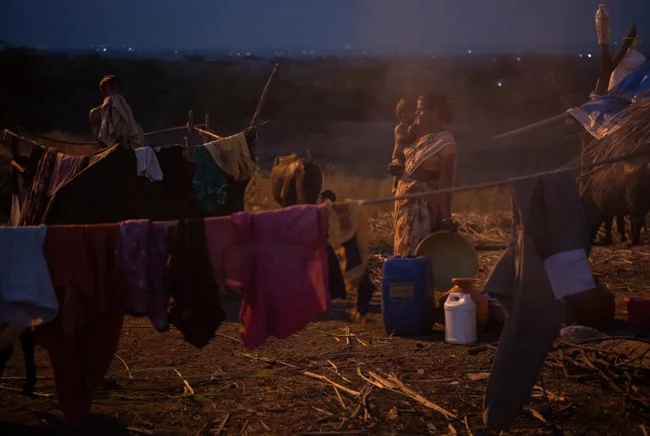
Workers are moved from field to field, where they set up farms in the middle of the fields
And some are just stupid and uneducated to understand how much they need to live on for a year. In India, long-term thinking is very poorly developed, a day has passed - and that's it.
Families are trapped, usually without a contract and no way to seek help. But when they try to leave, they are harshly shown their place.
Koita, or Sugar makes you marry early
The thing is that it is usually a koita who works in the fields. This is a couple of two people, usually a husband and wife, so that their output is common, family-like, it is easier to count when reporting and paying. 
Children start working at the age of seven, she is five now, she just waits for adults in the fields
And many families that live near the fields were formed in a hurry so that they could go to work as quickly as possible. That's why girls here are married off as early as 11 years old. Not so that they can have children, but so that they can form a koyta with their husband and go to work.
Manufacturing companies benefit greatly from such early marriages because married girls no longer go to school. And the less educated the workers are, the easier it is to drive them into debt bondage and make them work for years. 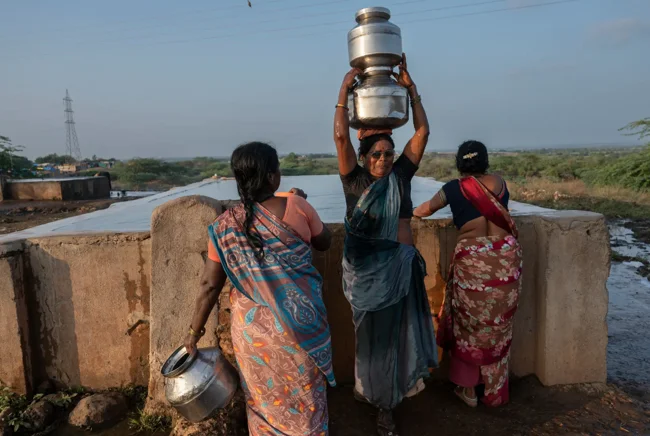
There are women in Indian villages, pay attention to the format of popular canisters - this is to be comfortable to wear on your head
This is the price of being the largest supplier of cane sugar in the world, so you can even be happy sometimes if you are not the first in something.


























